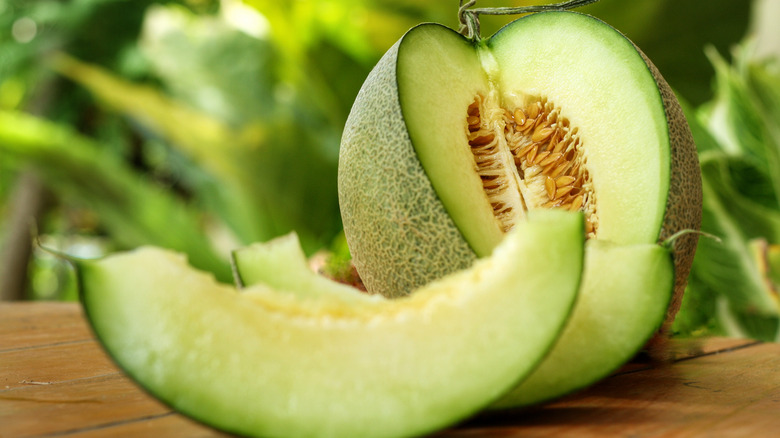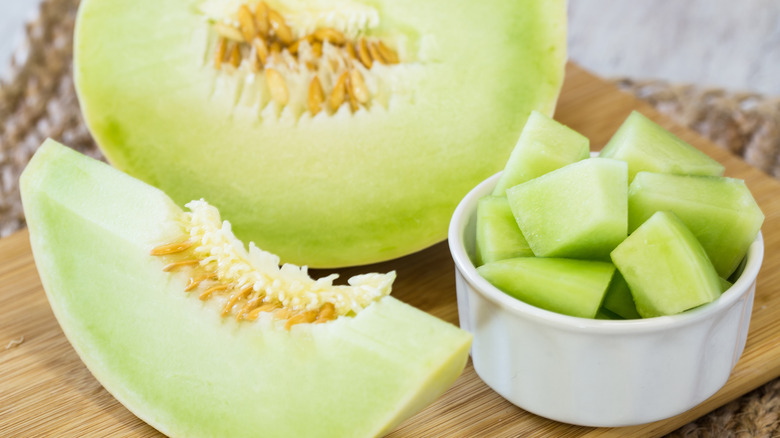The Mysterious Origins Of Honeydew
Does any fruit have a better name than honeydew? Redolent of sweetness and moisture, the honeydew is indeed the sweetest musk melon, per The Ecology Center. The moniker is far too evocative and expressive to be the melon's original name. Like much of the history of this delicious member of the Cucurbitaceae family, the true story is chock-full of interesting facts.
The origin of honeydew melons are somewhat shrouded in mystery, but evidence places them in West Africa as far back as approximately 4,000 years ago, according to the Produce Blue Book. There is some conjecture that they might have originated in West Africa, but far more fascinating, is their association with the Ancient Egyptians. Honeydews were revered as sacred food in Ancient Egypt, and hieroglyphic mentions of them have been found in tombs dating to 2400 BCE, reports Food History. They were also known and grown by the Ancient Romans, who were the first to cultivate them in Europe.
Christopher Columbus is credited for introducing honeydew seeds to the Americas, notes Produce Blue Book, and for helping to spread their cultivation throughout the New World. Today, they're grown around the globe, from Turkey and China — both considered the foremost producers of the fruit, per Specialty Produce – as well as in the U.S. Mexico, and much of Central America.
How honeydew melons got their name
As for the name, the story began at a posh dinner located in an upscale New York City hotel in 1911 where sweet honeydew melon was one of the featured menu items. An impressed diner saved the seeds, which he subsequently sent to a Colorado-based melon breeder named John E. Gauger, notes Specialty Produce. Gauger, through his association with the United States Department of Agriculture (USDA), was able to identify the melon, which was known in France as melon d'Antibes blanc d'hiver (or white Antibes winter melon). Gauger thought honeydew rolled easier off of the tongue and that the new name would help it sell better in the U.S. Gauger is considered for the name we know it by today (per Specialty Produce).
In addition to being the sweetest musk melon and its fascinating history, honeydews are also great for hydration, as they're made up of almost 90% water, Healthline confirms, with plenty of valuable electrolytes to boot.

